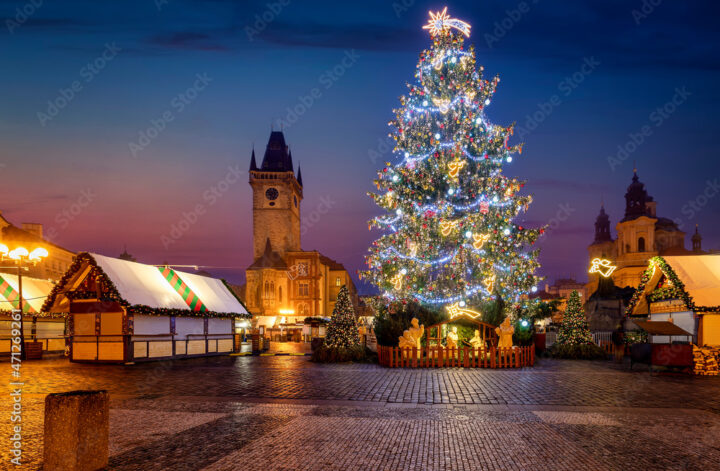Few people remember how, in the Christian world, the Advent season — the four weeks before Christmas — was a period of penance. It was called Christmas Lent. The vestments of priests at Mass were purple in mourning. One could not even get married. When it happened, with a particular bishop’s dispensation, the whole village suspected that the girl was pregnant. Rites were marked by sobriety, with a few breaks. These included the feasts of St. Nicholas and St. Lucy, days set aside for gifts. Depending on the country, each community chose one or the other saint.
But the feasts of St. Lucy and St. Nicholas also had religious solid and peasant connotations: food or stockings were left on windowsills. It was a way of practicing silent charity and teaching children that generosity carries a reward. On Christmas Eve, on the other hand, one did not have to eat at all as in Ramadan, and as in the Islamic holiday, in the evening, one stuffed oneself though avoiding meat. Stores, bars, and taverns remained closed. Those few establishments kept open were frequented by people pointed at as evil sinners. The child who could not resist a piece of candy imagined himself burning in hell. After a few years, he would pay a shrink to remove their guilt.
At the midnight Mass, the church was always packed despite the hour, the cold, and often the snow, and you could see latecomers huddled outside the front door. People walked to the church because no one had a car, and the few who owned one lived near the many churches scattered throughout each hamlet. On Christmas Day, there was a big family lunch gathering. The gifts Baby Jesus brought had partially replaced those of St. Nicholas and St. Lucy. However, the advent of television, foreign films, and emigration to other regions, all products of globalization and media influence, were building the new shared tradition of Christmas gifts, shifting the focus from religious observance to material exchange.
In America, Jewish children thought Hanukkah was a significant holiday corresponding to Christian Christmas, angering rabbis who, over time, came to terms with it. And similarly, Muslim children residing in Europe demand gifts like everyone else. Today’s children are tomorrow’s tradition.
But more than immigrants, we are different: we have transformed ourselves into “others.” Advent Lent practically disappeared in Europe in a decade between 1955 and 1965. The rural world disappeared. In the following decades, many towns were absorbed into larger and larger cities. Everyone went to school and learned official languages on TV, and with language, they also imitated modern tastes, manners, ambitions, and frustrations. The Church became more tolerant of everything and forgot about fasting. Keeping stores and bars open was no longer a scandal, especially on Christmas Eve when the shopping tradition was imposed in defiance of penance. Today, the Advent season is marked by bustling markets filling European cities, starkly contrasting its original intent of penance.
Nothing changes more than the tradition. Of getting the dispensation to marry in Advent, as the years passed, it was no longer necessary. Indeed, it was no longer even necessary to marry. The modest illuminations of the past — little more than devout candles on windowsills — were a religious gesture perhaps intended to point the way for Joseph and Mary or the Three Wise Men. Or maybe they were a way to avoid feeling lost in the increasingly cold and dark December nights. In the 1960s and 1970s, finding a church seat at Midnight Mass became easy, yet decorations flooded houses and squares.
The new cottages on the edges of cities and the countryside were covered in lights. Municipalities competed to make the most beautiful tree in front of City Hall. Citizens were not complaining about the waste they left in debt to the few children they were generating. Pastors desperately appealed to religious values, but by then, Christmas had become a festival of consumption and luxury for almost everyone. The shift from a religious holiday to a commercial event has significantly diluted the spiritual significance of Christmas. Advent and a penance designed as a motivation to curb consumption and get through the winter unscathed were no longer taken notice of. What remained were the large family gatherings and the lavish luncheons that were also increasingly celebrated in restaurants. By the turn of the century, the religious atmosphere of Christmas was a memory.
While consumerism replaced religious sentiment long ago, Christmas has also lost its significance as a gathering occasion for extended families. The traditional family structure has changed with fewer children, more divorces, and increased blended families. The holiday season is often used as an opportunity to travel rather than gather. The dwindling number of seniors who remember the holidays of yesteryear are often left alone, their memories recreated in nursing homes sadly decorated for the holidays.



